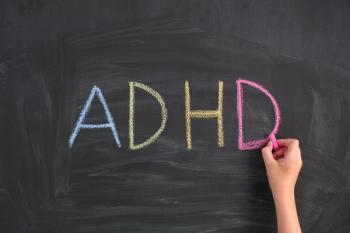
Is there a link between ADHD and maternal autoimmune disease?
A new study examines whether maternal autoimmune diseases are linked to attention-deficit/hyperactivity disorder (ADHD).
The role of a mother’s health beyond pregnancy has increasingly become identified as an influence on her offspring’s well-being. A
Investigators conducted a cohort study of all singleton children who were born at term gestation, 37 to 41 weeks, in New South Wales, Australia, from July 2000, to December 2010. Each child was followed-up until the end of 2014. The children who were exposed to maternal autoimmune disease were propensity score matched (1:4) to unexposed children. For the purpose of the study, a child was considered to have attention-deficit/hyperactivity disorder if they had an authorization or filled prescription for stimulant treatment of the disorder or a hospital diagnosis. Children who were linked to a first attention-deficit/hyperactivity disorder event before 3 years of age were not included in the study.
The study had a cohort of 63,050 infants: 12,610 infants exposed to maternal autoimmune disease and 50,440 control infants. In the cohort, attention-deficit/hyperactivity disorder was linked to type 1 diabetes (hazard ratio [HR], 2.23; 95% CI, 1.66-3.00), rheumatic fever or rheumatic carditis (HR, 1.75; 95% CI, 1.06-2.89), psoriasis (HR, 1.66; 95% CI, 1.02-2.70), as well as any autoimmune disease (HR, 1.30; 95% CI 1.15-1.46). The researchers also ran a meta-analysis of 5 studies, which included their study. In this meta-analysis, they also found that attention-deficit/hyperactivity disorder was linked to type 1 diabetes (4 studies: HR, 1.53; 95% CI, 1.27-1.85), hyperthyroidism (3 studies: HR, 1.15; 95% CI, 1.06-1.26), psoriasis (2 studies: HR, 1.31; 95% CI, 1.10-1.56), and any autoimmune disease (2 studies: HR, 1.20; 95% CI, 1.03-1.38).
The investigators concluded that maternal autoimmune disease was linked to increased attention-deficit/hyperactivity disorder, which they believe could indicated a shared genetic vulnerability between both. They said that future research into this should further the understanding of the underlying mechanisms.
Reference
1. Nielsen T, Nassar N, Shand A, et al. Association of maternal autoimmune disease with attention-deficit/hyperactivity disorder in children. JAMA Pediatr. January 19, 2021. Epub ahead of print. doi:10.1001/jamapediatrics.2020.5487
Newsletter
Access practical, evidence-based guidance to support better care for our youngest patients. Join our email list for the latest clinical updates.






